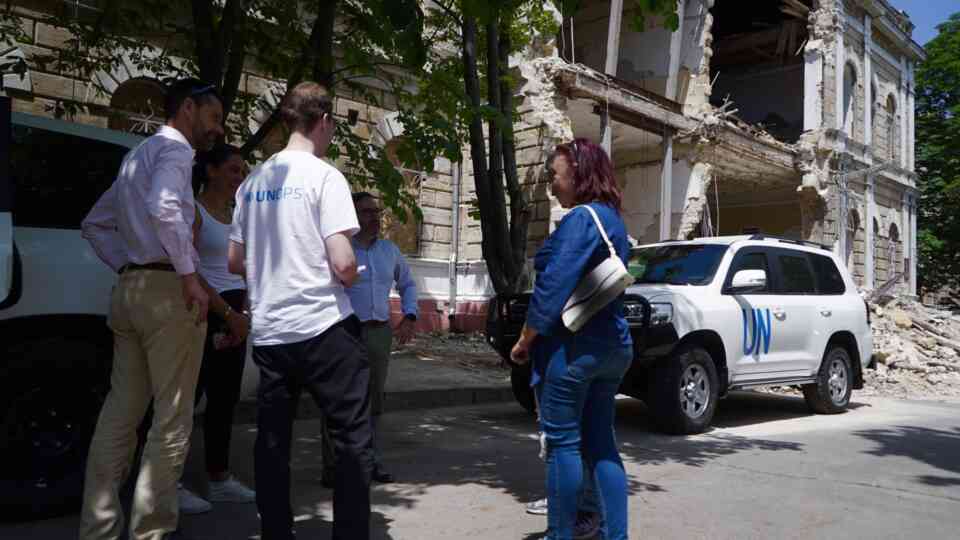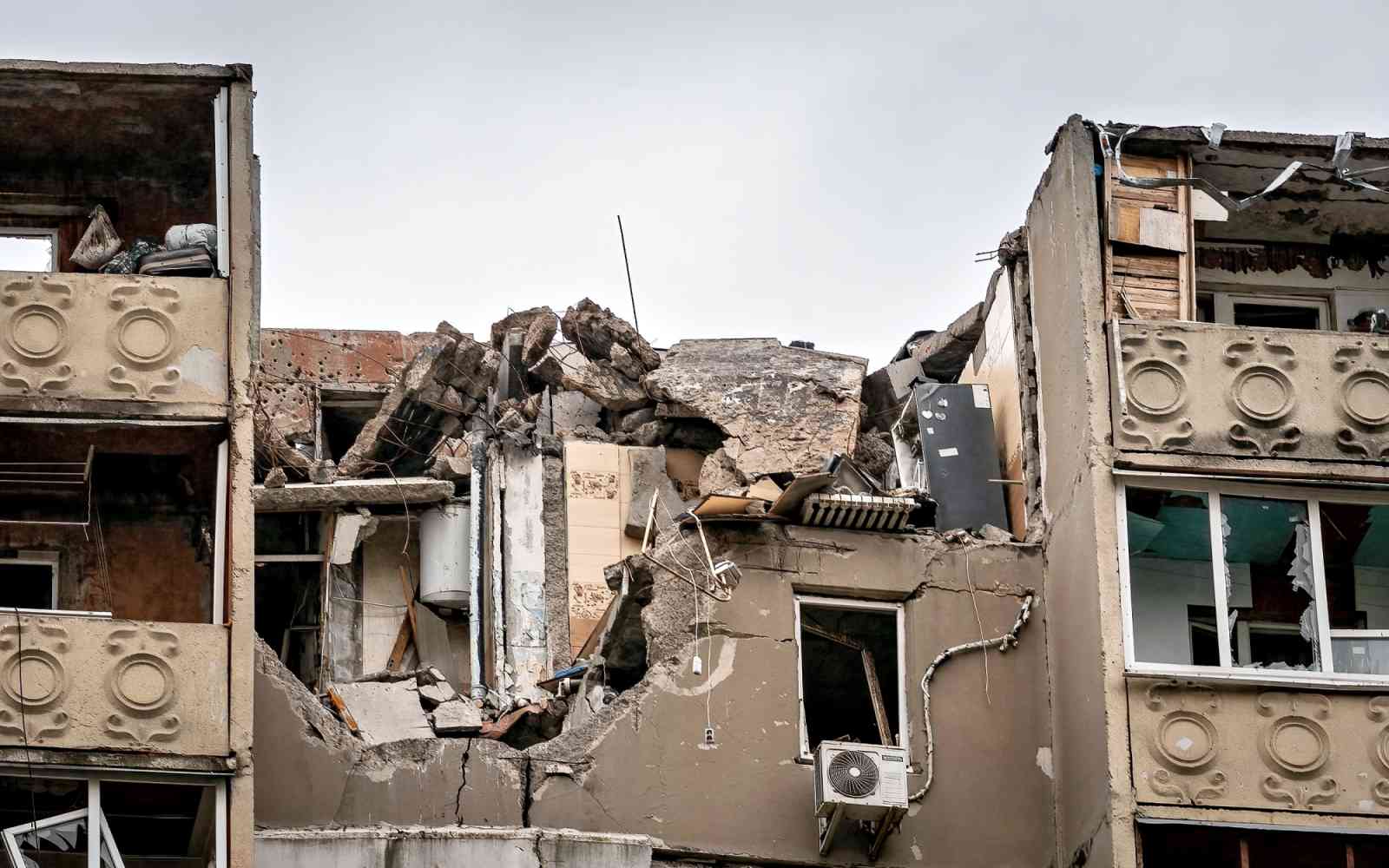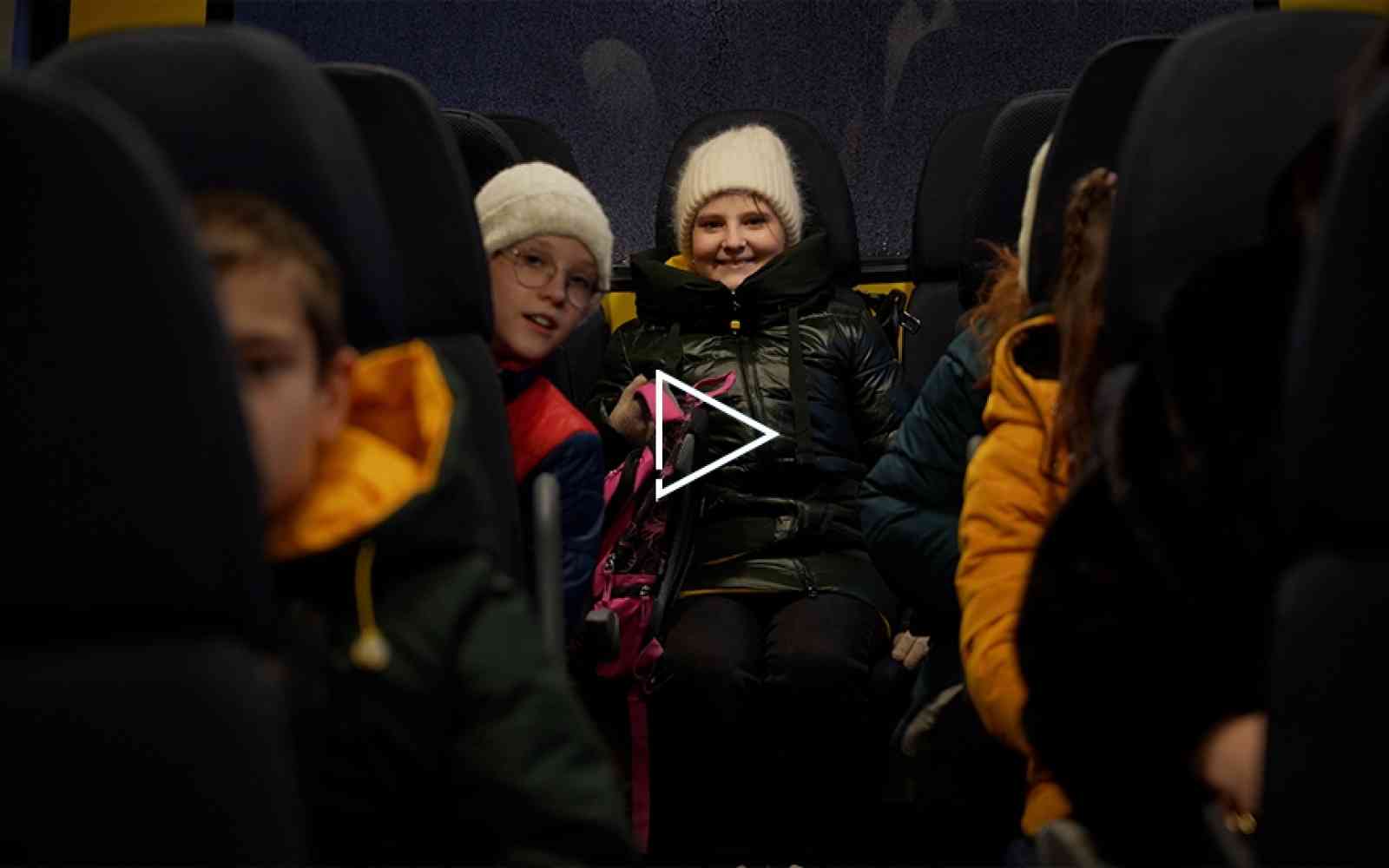The United Nations Office for Project Services (UNOPS)
Enhancing access to education in Ukraine
UNOPS and the government of Denmark extend partnership to provide school buses in Ukraine's Dnipropetrovsk region.

The war in Ukraine has left thousands of schools across the country damaged or destroyed, and prevented millions of children from accessing education. Damaged public infrastructure and the disruption of essential services, including power infrastructure and transportation, has further hampered access to educational facilities, putting critical years of schooling and social development at risk.
To help, UNOPS is working with the government of Denmark to procure a fleet of new school buses for several regions in southeastern Ukraine, starting with Dnipropetrovsk.
This initiative aims to significantly boost educational accessibility, and marks a crucial step in addressing some of the challenges faced by students in remote and disaster-impacted areas – ensuring they can attend school regularly.
“Denmark and Ukraine are very close partners, and it is good to see that our partnership can also support education in the Dnipropetrovsk region,” explained Ole Egberg Mikkelsen, Denmark’s Ambassador to Ukraine.
The first set of school buses has already been delivered, enabling nearly 100 students from each community in Dnipropetrovsk to return to school.
“These 11 school buses will allow more school children to attend the schools in the region and receive the necessary education. Apart from the buses to Dnipropetrovsk, a stronghold region for Ukraine’s resilience and fight for freedom, more buses will be delivered shortly to Kharkiv and Mykolaiv regions. This is a good supplement to the solidarity campaign ‘School buses for Ukraine’, launched by European Commission President Ursula von der Leyen and First Lady of Ukraine Olena Zelenska in November 2022,” added Ole Egberg Mikkelsen.
"In total, the fleet of [buses for] our educational institutions has been expanded by 55 vehicles this year […] We do our best for the children. Despite the war, they need to learn, communicate and make friends. To build the future,” explained Sergiy Lysak, Head of Oblast Military Administration.
Through the project, a total of 34 school buses will be distributed across Dnipropetrovsk, as well as Kharkiv and Mykolaiv regions by the end of 2023, significantly enhancing educational opportunities and access for students.
UNOPS remains committed to supporting the Ukrainian people through both immediate recovery and long-term reconstruction efforts.
“Our collaboration with the Danish government, exemplified by the recent delivery of 11 school buses, aligns with our broader goal of enhancing accessibility and educational opportunities in a number of regions of Ukraine. These school buses play a crucial role in our mission to ensure that students in various communities can access education, mirroring our commitment to addressing critical energy and housing needs in the Mykolaiv region during the winter,” explained Tim Lardner, UNOPS Country Director in Ukraine.
This initiative is part of a wider partnership between UNOPS and the government of Denmark to support communities in Mykolaiv and surrounding areas that have been impacted by the ongoing war. It focuses on stabilizing and maintaining essential services like electricity and heating in regions with damaged infrastructure. It includes comprehensive damage assessments, feasibility studies for bomb shelter construction, and repairs to schools and other public institutions. Initiatives also include the procurement and delivery of vital equipment and supplies, demonstrating a strong commitment to rebuilding and supporting affected communities.















